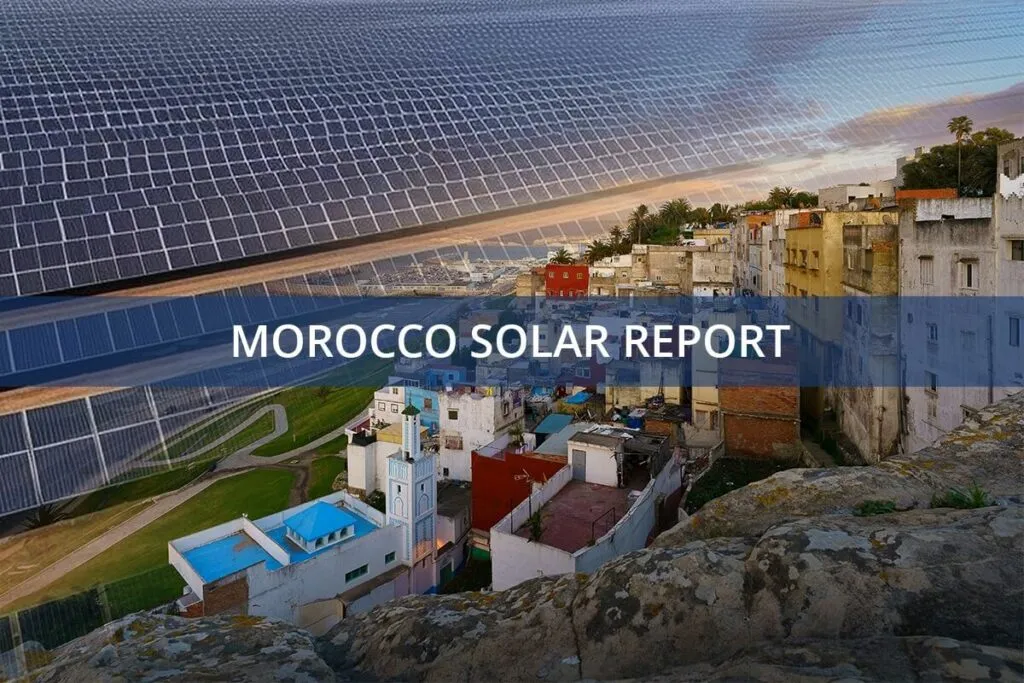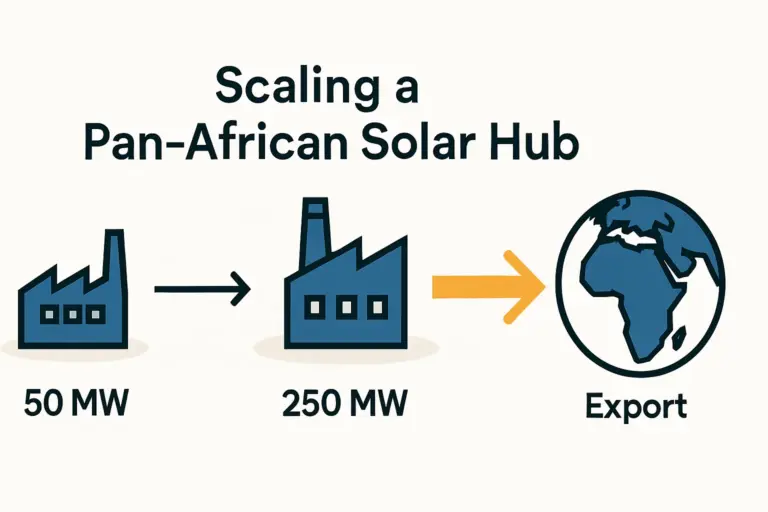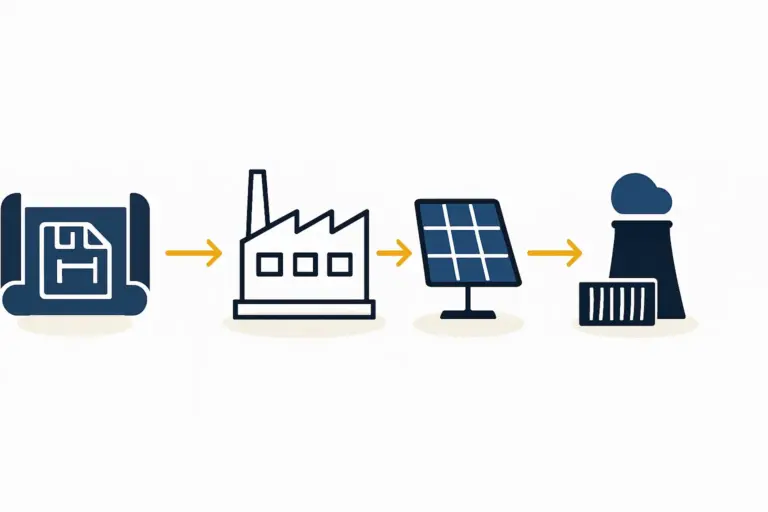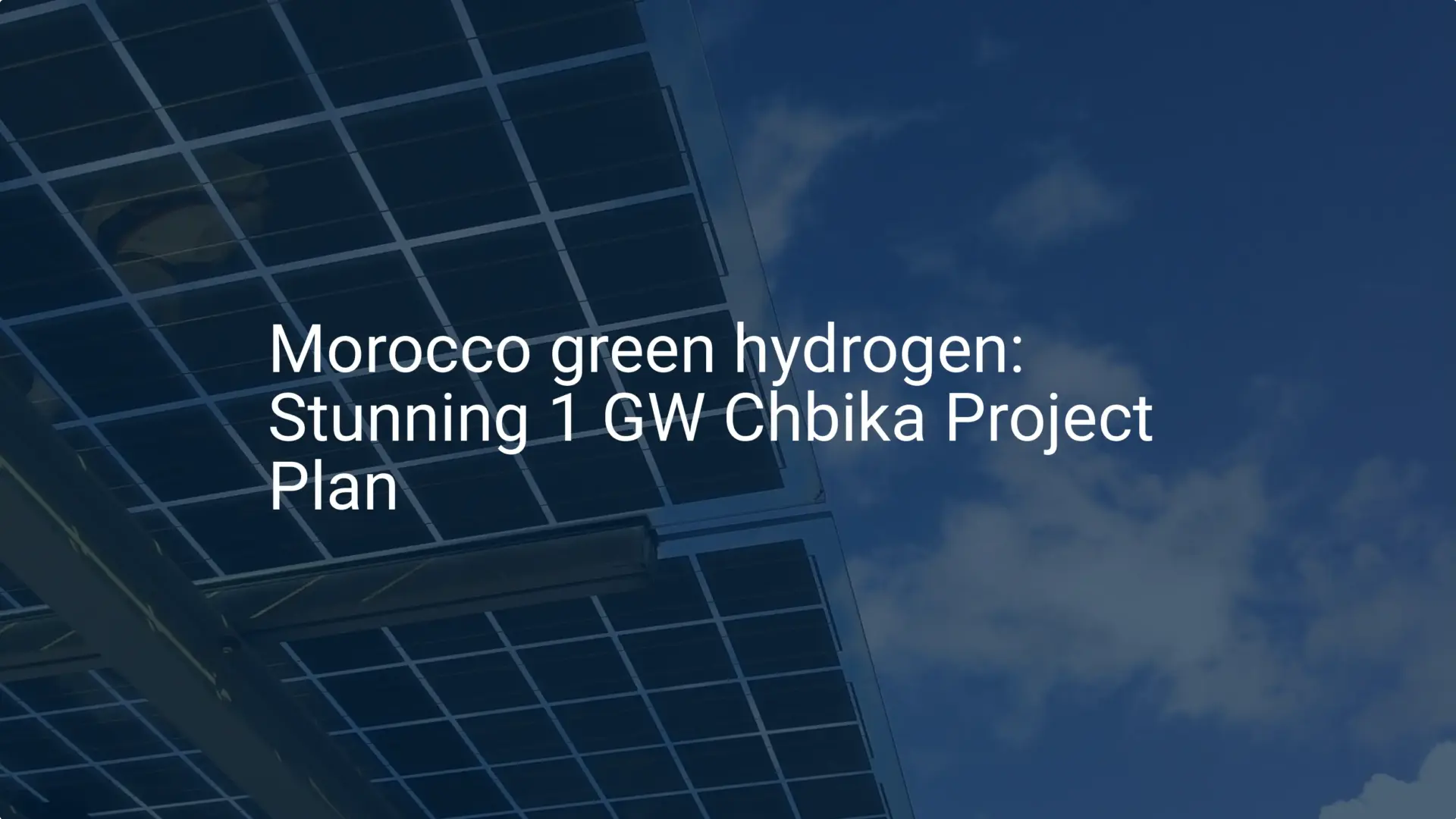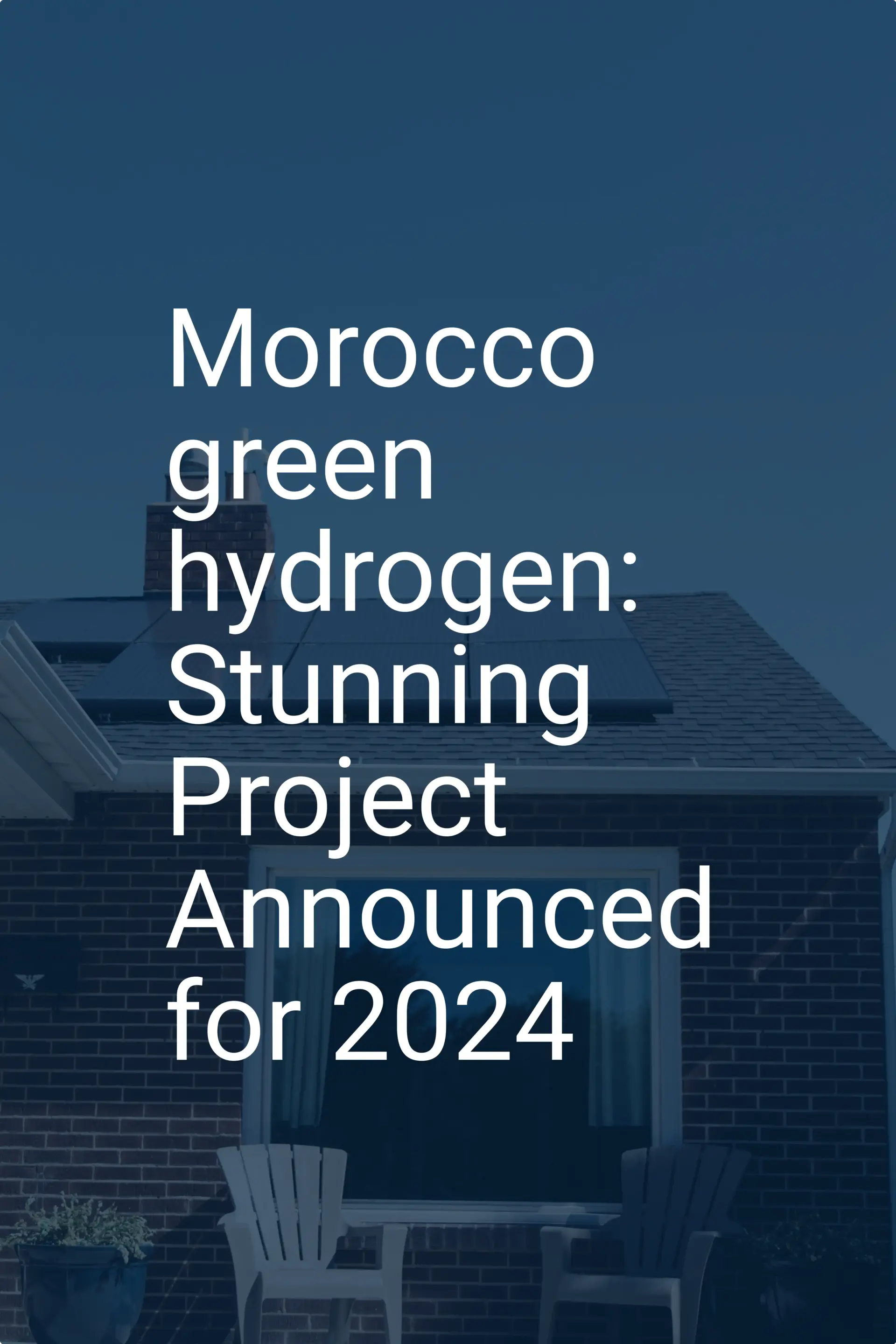Choosing a location is one of the most consequential decisions an investor makes when establishing a manufacturing facility. In Morocco, a country rapidly emerging as a strategic hub for renewable energy, this decision often comes down to two distinct environments: a designated Free Trade Zone (FTZ) or a Standard Industrial Zone (SIZ).
While it may seem like a simple logistical question, the answer has profound implications for a company’s tax liabilities, operational costs, and market access. This analysis explores the strategic differences between these two models, providing a framework to help entrepreneurs and business leaders determine which environment best aligns with their objectives for a solar panel factory.
Understanding Morocco’s Strategic Position for Solar Manufacturing
Morocco’s appeal as an investment destination stems from its political stability, pro-business government policies, and unique geographical position at the crossroads of Europe, Africa, and the Middle East. The government actively encourages foreign investment, particularly in sectors like renewable energy, which it views as vital for national development and export growth.
This supportive climate offers investors two primary pathways for setting up industrial operations. The choice between an export-focused Free Trade Zone and a domestically oriented Standard Industrial Zone is not a matter of preference; it is a strategic decision that must align with the core business model.
The Free Trade Zone (FTZ) Advantage: A Focus on Export
Morocco’s Free Trade Zones, such as the prominent Tanger Med Industrial Platform (TMIP), are specially designated areas designed to attract export-oriented industries. They function as economic enclaves where businesses operate under highly favorable financial and administrative regulations, distinct from the rest of the country.
Key Financial Incentives in an FTZ
The primary benefit of establishing a solar factory in an FTZ is the substantial tax relief. Businesses located within these zones receive:
-
A complete exemption from corporate income tax for the first five consecutive years of operation.
-
Following this initial period, the corporate income tax rate is capped at a preferential 15%.
-
Full exemption from Value Added Tax (VAT), business tax, and other registration duties.
These incentives significantly reduce the initial financial burden and improve cash flow during the critical start-up and scaling phases of a manufacturing venture.
Customs and Logistics: Streamlining Operations
For a business that relies on importing specialized equipment and raw materials, an FTZ offers a significant operational advantage. All machinery, components, and materials needed for the solar panel manufacturing process can be imported completely free of customs duties and import taxes. Furthermore, customs procedures are simplified and expedited, minimizing delays and administrative overhead. This streamlined environment is crucial for maintaining efficient production schedules and managing supply chain costs.

The Business Model Fit for an FTZ
It’s essential to understand that these benefits are conditional. The FTZ model is specifically structured for companies that generate at least 70% of their total turnover from exports. An investor planning to supply the European and African markets with solar modules would find this framework perfectly suited to their objectives. The combination of tax incentives, duty-free imports, and proximity to major shipping routes creates a powerful, cost-competitive platform for international trade.
The Standard Industrial Zone (SIZ): Serving the Domestic Market
Standard Industrial Zones are located throughout Morocco and operate under the country’s general economic and legal framework. They are the natural choice for businesses whose primary focus is serving the growing Moroccan domestic market.
The Standard Tax and Customs Framework
Companies operating within an SIZ are subject to the standard national tax regime. This includes:
-
A progressive corporate income tax rate that can go up to 31%.
-
The standard Value Added Tax (VAT) of 20% on goods and services.
-
Applicable import duties on all imported machinery and raw materials.
While the tax burden is higher, an SIZ facility provides unrestricted access to Morocco’s internal market, which includes large-scale government tenders and private sector renewable energy projects. Investors must carefully factor these standard costs into their financial models when preparing a comprehensive solar business plan.
Strategic Considerations for Choosing an SIZ
The primary advantage of an SIZ is its integration with the domestic economy. For a business aiming to become a key supplier for Morocco’s national energy strategy, an SIZ is the more logical choice. It avoids the complexities of selling from an FTZ into the local market, which would be treated as an import. SIZs also offer a much wider choice of locations across the country, potentially offering better access to local labor or proximity to specific domestic projects. While government incentives may still be available, they are typically less comprehensive than those in an FTZ.

A Direct Comparison: Which Zone Fits Your Business Model?
The decision ultimately hinges on a single, critical question: where will the majority of your solar modules be sold? A misalignment between your chosen zone and your market strategy can create significant financial and operational inefficiencies.
Based on experience from J.v.G. turnkey projects, a common challenge is aligning the factory location with the long-term sales strategy. For instance, an investor whose primary goal is to export 90% of their product to Europe will find the FTZ’s tax and customs exemptions provide a decisive competitive edge. Conversely, an entrepreneur aiming to supply large-scale solar farms within Morocco would be better positioned in an SIZ to avoid the regulatory hurdles of selling ‘domestically’ from an export-focused zone.
Beyond Taxes: Other Factors in Site Selection
While the financial framework is a dominant factor, other practical considerations are vital when evaluating a potential site.
Infrastructure and Logistics
The quality of supporting infrastructure—including ports, road networks, and reliable electricity—cannot be overstated. World-class FTZs like Tanger Med are built around state-of-the-art logistical hubs, offering unparalleled efficiency for exporters.
Labor and Skills
Access to a technically competent workforce is a key driver of success. An investor should assess the local labor pool and the presence of technical training institutions near any proposed site.
Regulatory Environment
The overall ease of doing business, including the time required for permits and licenses, should be evaluated. Navigating these local administrative landscapes is a core part of understanding how to start a solar factory, and the one-stop-shop services in many FTZs can offer an advantage.

Frequently Asked Questions (FAQ)
Can a company in a Moroccan FTZ sell to the domestic market?
Yes, but it’s not the zone’s primary purpose. Sales from an FTZ into the Moroccan domestic market are treated as imports. This means they become subject to standard customs duties, VAT, and other import taxes, largely negating the zone’s financial benefits for those transactions.
Are the initial setup costs higher in a Free Trade Zone?
Not necessarily. While land or lease costs can vary, the exemption from registration duties and customs taxes on imported equipment can significantly lower the initial capital expenditure in an FTZ compared to an SIZ.
What is the main mistake to avoid when choosing between an FTZ and an SIZ?
The most significant error is choosing a zone based on tax benefits alone, without a clear and realistic long-term sales strategy. A business model focused on domestic sales will struggle with the export requirements of an FTZ, while an export-focused business in an SIZ will face a higher cost base than its competitors in an FTZ.
Conclusion and Next Steps
The choice between a Free Trade Zone and a Standard Industrial Zone in Morocco is a strategic one, dictated by the investor’s business model. FTZs offer a compelling, low-tax environment designed for export-oriented manufacturing. SIZs provide the foundation for businesses focused on capturing the potential of Morocco’s growing domestic market.
Making the right decision requires a detailed analysis of financial projections, target markets, and long-term business goals. For entrepreneurs in the initial planning stages, gaining a thorough understanding of the entire process is the logical next step toward a successful investment.

